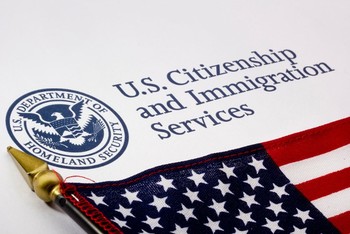 This July the PRAIDA, a Government-funded immigrant-support program in Quebec, Canada, has received 1,200 requests this month from those refugees fleeing the United States. This number exceed regular requests in four times. The leader of this program says it has not been so intensive ever in 30 years he has been working here. This influx made Canadian immigration agencies organize a “temporarily house” at the Olympic Stadium in Montreal for the refugees. The majority of new comers are Haitian nationals who are afraid to be deported from the Unites States due to their temporary resident status. They were warned this May by the US Department of Homeland Security, the immigration protections will last six more months and they should already plan their way home.
This July the PRAIDA, a Government-funded immigrant-support program in Quebec, Canada, has received 1,200 requests this month from those refugees fleeing the United States. This number exceed regular requests in four times. The leader of this program says it has not been so intensive ever in 30 years he has been working here. This influx made Canadian immigration agencies organize a “temporarily house” at the Olympic Stadium in Montreal for the refugees. The majority of new comers are Haitian nationals who are afraid to be deported from the Unites States due to their temporary resident status. They were warned this May by the US Department of Homeland Security, the immigration protections will last six more months and they should already plan their way home.
Many of them reside in the United States after the Haiti’s earthquake in 2010 which caused around 200,000 deaths. Thus, they gained a special Haitian Status has allowed 58,000 Haitians to legally work and live in the United States without fear of deportation. Montreal Mayor Denis Coderre wrote on his Twitter: “The city of Montreal welcomes the Haitian refugees. You can count on our full cooperation.” Last week more than 200 people moved there, and the temporary stadium quarters can hold a few hundred more. “We’re doing our best, but, obviously, there’s going to be a limit,” he said. “And we’re close to that limit.”
Though it is difficult to say for sure, how many of the refugees are Haitians, so Frantz Benjamin, the Haiti-born chairman of the Montreal City Council says that among 6,500 asylum seekers, the half must be Haitians. This number reflects the number of refugees coming to Canada since January, fleeing from the Trump’s immigration policies. “It’s clear for us that the new politic of Donald Trump, the new president of the United States, has created a panic that today has a lot of people believing that their future isn’t in the United States, and by ‘any means necessary’ they will get to Canada,” Benjamin said. “But we want to make it clear, Canadian law hasn’t changed.”







